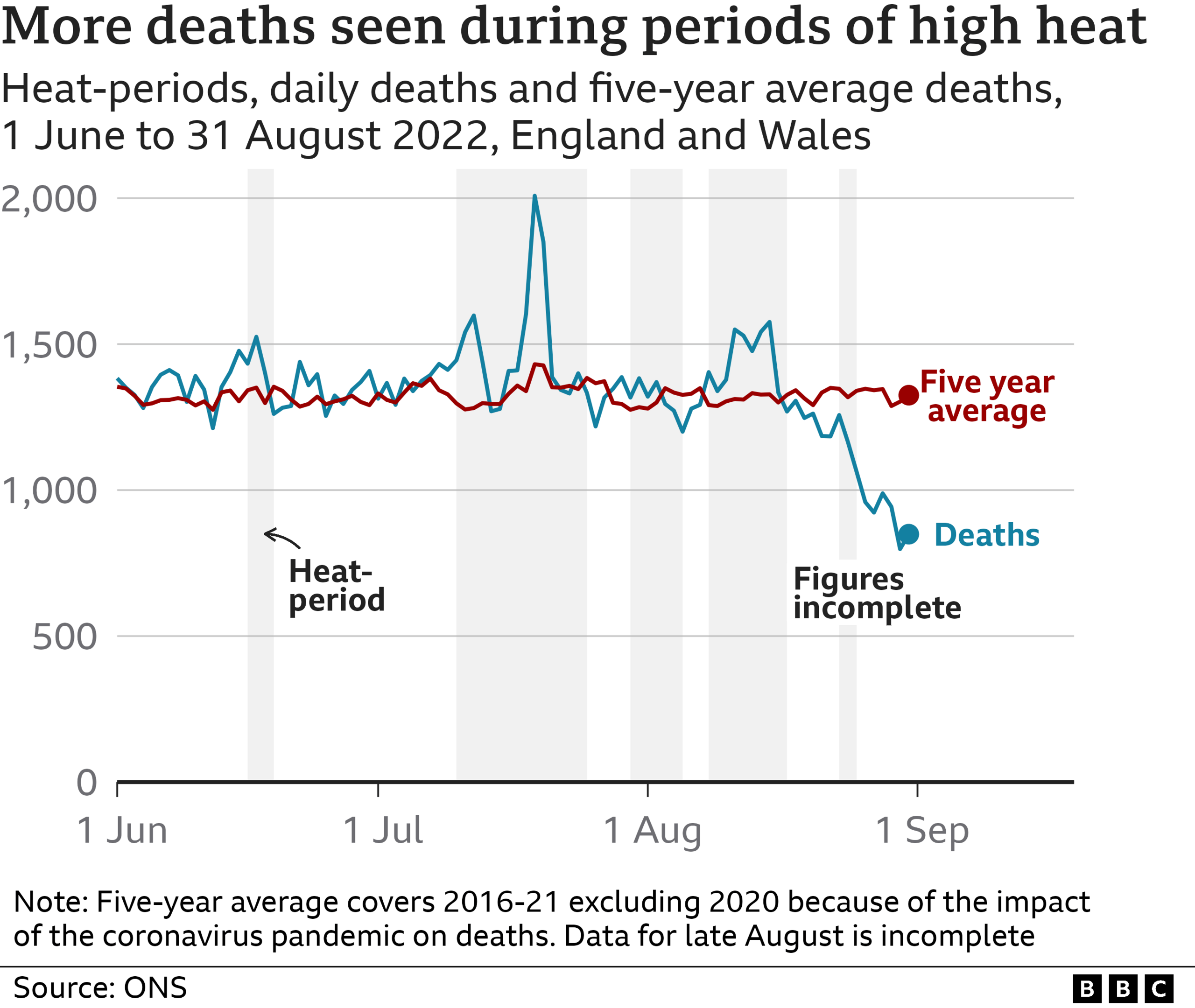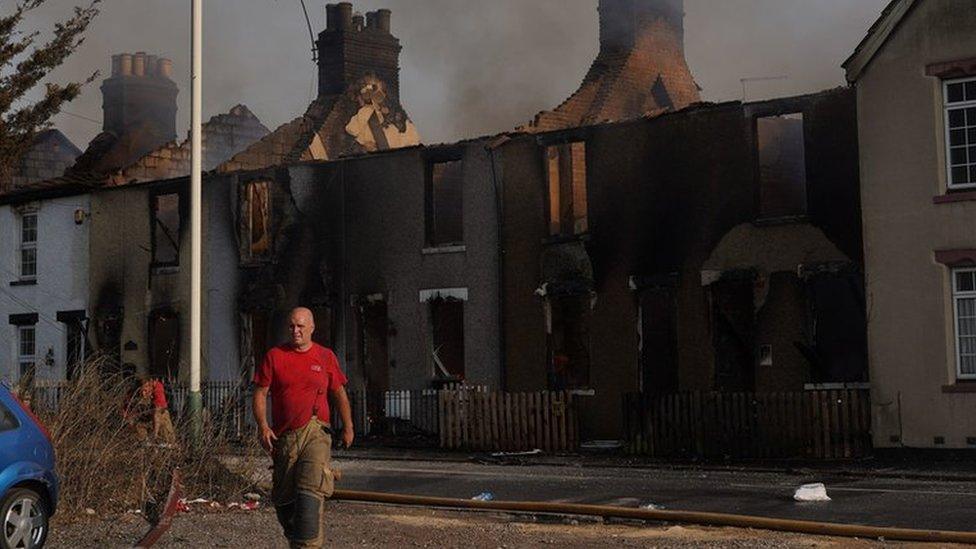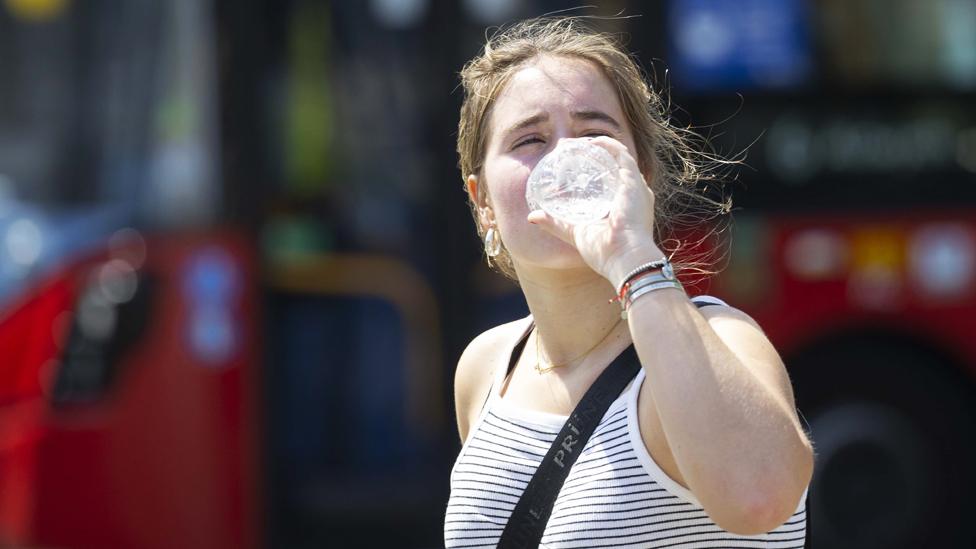Extreme weather: More than 4,500 deaths in England from 2022 heat
- Published

There have been more than 50,000 heat-related deaths and more than 200,000 related to cold in England and Wales since 1988, new official figures show.
The Office for National Statistics said very low and very high temperatures both increased the risk of death.
And although cold is the bigger killer, the ONS said heat-related deaths appeared to have risen in recent years.
Some 4,507 deaths were estimated to be linked to heat in England last year - when temperatures topped 40C.
That was the highest number of estimated heat-related deaths over the last 35 years - but does not take into account population growth, and is a similar number to levels in the 1990s and early 2000s when the population was smaller.
Last year, the UK saw record-breaking heat - with climate change playing a key role in pushing temperatures so high.
The extreme heat caused disruption across the country, and data has already suggested about 3,000 more over-65s died than usual in England and Wales last summer.
According to the ONS,, external once temperatures hit 25C, the number of temperature-related deaths go up by about 50%, compared to the optimal temperature for people. Below -5C, the number of temperature-related deaths shoot up by about 75%.
However such temperatures above 25C or below -5C were only experienced on relatively few days over the study period, and therefore contributed relatively few deaths, the ONS points out.
It comes as researchers from Oxford University recently published a report saying many UK buildings need to be renovated to protect people from extreme heat - including in large cities which can be several degrees hotter than the surrounding countryside.
The ONS said the highest risk of death was in London on days when temperatures top 29C - when the mortality risk triples, compared to when temperatures are between 9C and 22C.
And all regions of England and Wales showed an increased risk of death when temperatures rose above 22C.
The ONS compiled its figures based on information from the Centre for Environmental Data Analysis and created a new method to understand how temperature affects risk of death.
Their analysis also showed a sharp rise in deaths during the winter of 2010/11 when the UK saw unusually cold temperatures.
Holly Holder, from the charity the Centre for Ageing Better, said the new statistics showed "it would be a grave mistake to slow down or roll back net-zero policies", the PA news agency reported.
"Climate change isn't just something that is happening in the Antarctic or in very hot countries, it is impacting lives, and taking lives, here in the UK," she said.
"Our housing is the oldest, and among the poorest quality in Western Europe and is not fit for purpose to face the challenges of more extreme temperatures and weather."

This week Rishi Sunak announced plans to weaken some of the government's green commitments, such as delaying a ban on selling new petrol and diesel cars.
But Mr Sunak insisted the UK was still on track to hit its targets - and it was not necessary to make the changes earlier than needed.
Experts have previously said that the record-breaking heat seen in the UK last year will be considered cool by the end of this century. They say the record heat for the UK was made much more likely by climate change.
Related topics
- Published7 October 2022

- Published19 July 2022

- Published27 July 2023

- Published3 July 2023

